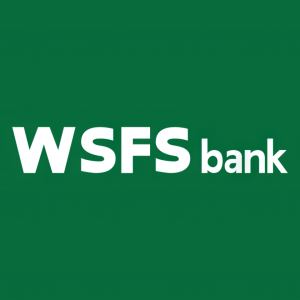Reverse Mortgages Can Provide Needed Cash Flow and Flexibility, But Educational Opportunities Still Exist, WSFS Mortgage Study Reveals
“Reverse mortgages have undergone significant changes the past decade, but the biggest change is how many financial advisors are now incorporating housing wealth into their retirement income planning,” said Jeffrey M. Ruben, President of WSFS Mortgage. “A reverse mortgage could be a good option for those seeking to strengthen their cash flow in retirement.”
The nationwide study, which surveyed 750 homeowners aged 60 years or older, gauged respondents’ financial stability, knowledge and attitudes toward reverse mortgages.
Educational Opportunities
Lack of knowledge around reverse mortgages may be driving homeowners to overlook them as a viable option for their financial situation. Among respondents, nearly one-third (
In comparison to reverse mortgages, the majority of respondents felt they had a better understanding of credit cards (
“It is not surprising that most Americans do not have a great understanding of a reverse mortgage as it is mostly a strategy that is not available for younger Americans,” said Jamie P. Hopkins, Senior Vice President, Director of Private Wealth Management, Bryn Mawr Trust. “So, while we get hands-on experience with other borrowing techniques like student loans, credit cards, and traditional mortgages as we move through life, we don’t get the same hands-on experience with reverse mortgages. As such, the need for more education around the product and strategies are arguably more important for Americans.”
However, one-third (
Among the list of Ruben’s recommendations:
- Know the basics: With a reverse mortgage repayment is due when the last of the borrowers no longer occupies the house as their primary residence. At least one borrower must be 62 years old or older and must occupy the house as their primary residence. Funds from a reverse mortgage can be provided in lump sums, monthly payments or set up as a line of credit for when you need it.
- Potential Uses: A reverse mortgage can enable homeowners to leverage the equity they’ve built in their home to eliminate existing monthly mortgage payments, provide cash flow without needing to tap into other retirement savings, pay off debt, and more.
- For Those Looking to Downsize: Homeowners could sell their current home and use the proceeds from that sale coupled with a reverse mortgage on their new home to make the purchase without the need for monthly mortgage payments.
- Work Closely with Your Advisors: Your financial advisor and lender can help answer any questions you have and dispel the stigma of reverse mortgages being a ‘last resort.’ They will also be able to evaluate if one is right for your situation and help weigh the pros and cons.
Retirement and Financial Planning Factors
Reverse mortgages can play a significant role in retirement and financial planning by providing homeowners with a supplemental source of income. Three-in-ten (
“For many Americans, their house is their largest asset, but it can also be your largest liability in the sense of cash outflow each month. Your home comes with a lot of costs, like mortgage payments, utilities, property taxes, and more, which can really impact retirement planning,” said Hopkins. “Housing, wealth and retirement is more about cash flow, and can you maintain that cash flow and your property while living the life you want in retirement.”
Most homeowners with knowledge of reverse mortgages agree they can provide needed cash flow (
“You can use your home very strategically in retirement,” added Hopkins. “Cash flow from a reverse mortgage can be an alternative source to a traditional investment portfolio. It can help cover things like long-term care, provide retirement income, cash flow management, and tax planning benefits. A reverse mortgage isn’t earned income so it is not taxable, but you will need to stay current on your property taxes and insurance. It is vital to work closely with your financial advisor to determine if a reverse mortgage is a fit for you.”
Survey Methodology
The study was conducted by research company Opinium. The sample included 750 homeowners ages 60+ nationwide. The online survey was conducted from February 16-21, 2024, with a margin of error of +/-
About Opinium, Inc.
Opinium is an award-winning strategic insight agency built on the belief that in a world of uncertainty and complexity, success depends on the ability to stay on pulse of what people think, feel and do. Creative and inquisitive, we are passionate about empowering our clients to make the decisions that matter. We work with organizations to define and overcome strategic challenges – helping them to get to grips with the world in which their brands operate. We use the right approach and methodology to deliver robust insights, strategic counsel and targeted recommendations that generate change and positive outcomes.
About WSFS Financial Corporation
WSFS Financial Corporation is a multibillion-dollar financial services company. Its primary subsidiary, WSFS Bank, is the oldest and largest locally headquartered bank and trust company in the
View source version on businesswire.com: https://www.businesswire.com/news/home/20240319221595/en/
Media: Kyle Babcock
(215) 864-1795
kbabcock@wsfsbank.com
Source: WSFS Mortgage








